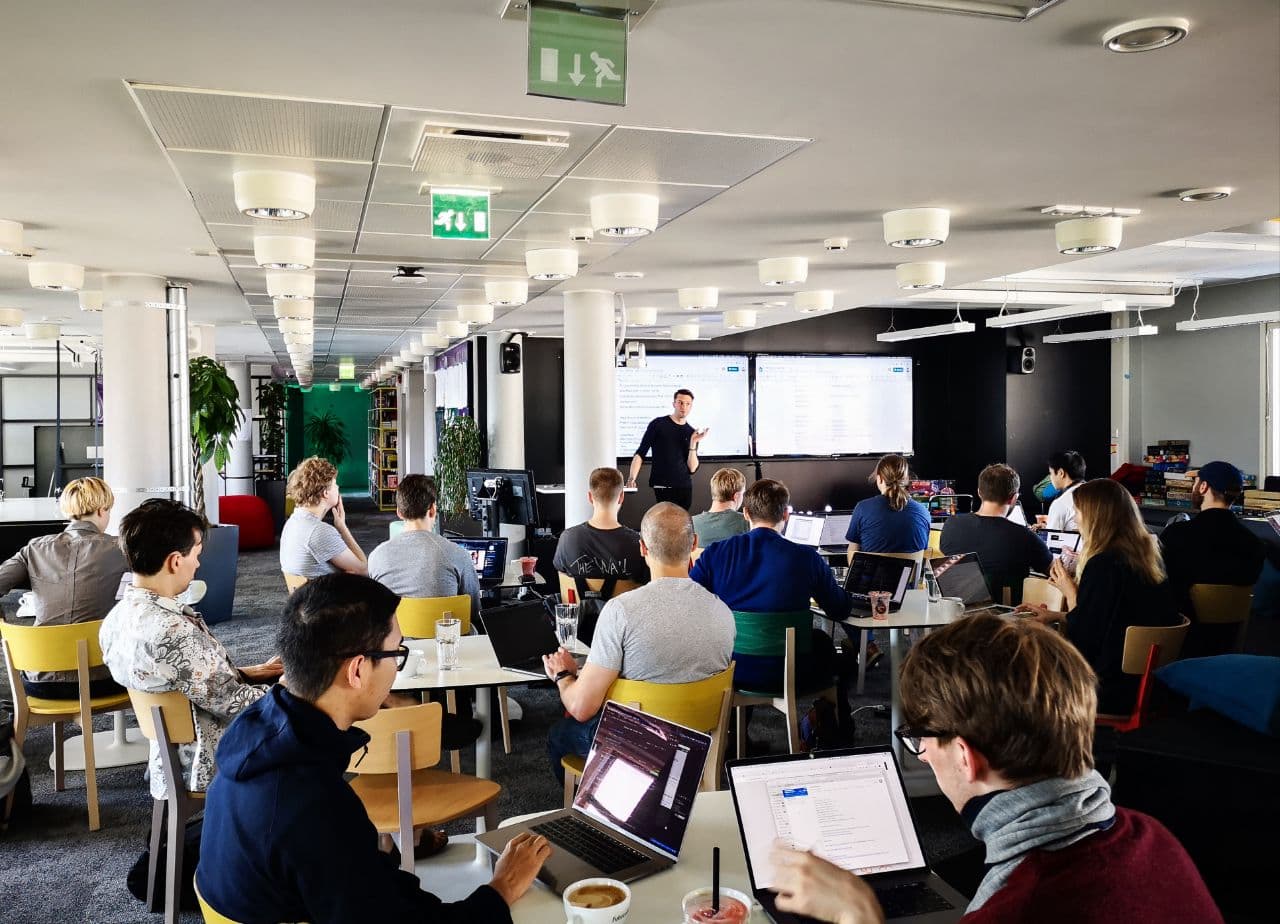At Futurice, one of the core promises for employees, is learning. Learning through knowledge sharing is one of the most common ways to learn new things. How does one share knowledge to a larger group of people though? During the last two years, I had been using a relatively niche technology, Clojure. And I was asked, by my fellow colleagues, to show, and maybe even teach it. I knew there were enthusiastic Clojurians, besides me, within Futurice. But, how were we going to spread our knowledge about Clojure? Youtube videos that no one would watch? Blog posts that no one would read? An answer I got from my peers was to facilitate a workshop.
After asking around, it seemed like a plenty of people were interested in joining a Clojure training. Us, Clojure enthusiasts, decided to move forward and start planning it. And off we were! With no material ready, we started planning. Five Clojure enthusiast, and one month of planning. During planning, we wondered -- should we only share our knowledge within Futurice? The answer was, we shouldn’t. We should spread it to as many people as possible! All the material for our workshop would be available on Github. The workshop was sponsored by Futurice’s internal open source program, spice. Come workshop day, material in hand, one hot Helsinki office, and 20 participants. We sat, and we taught, and learned Clojure. The workshop seemed successful. 20 people were, hopefully, more knowledgeable about Clojure. Gathering feedback from the participants. Many of them mentioned that they couldn’t see themselves ever using Clojure in a client project. Disheartening, but completely understandable. There still seemed to be a lot of anxiety and uncertainty about Clojure. The only thing we could do was to improve the material for the training. And try to tackle the uncertainties the people had expressed during the training.
The story doesn’t end here yet! Our Munich office expressed interest in a Clojure training. They had decided to use Clojure, and they wanted to learn as much as possible for their upcoming project. There we were again, spreading the gospel of Clojure. 9 participants, and one really hot working space. It seems that a Clojure workshop can’t be complete without a hot room. New updated material in hand, we sat, we learned, and we taught again. The feedback from the workshop in Munich was wonderful. 9 participants were less confused about Clojure. It felt like the participants were now much less fearful of Clojure. And the anxiety of this niche technology decreased.

To summarize: 2 trainings, 29 people participants, 16 hours of learning. End result -- at least half of all the participants would use Clojure more in the future, and some would like to use it in their projects.
To answer the question in the title. Learning Clojure at Futurice happens when people, want to spread knowledge, choose it for their project or when they ask question from knowledgeable colleagues. Of course, this is only one of many ways to learn something new and interesting things at Futurice.
As mentioned, Futurice encourages learning. Futurice has recently adopted a certificate program. Employees get paid to learn and earn certificate. We see gaining accreditation and certificates as a business-critical necessity, and we run a programme to encourage this. We schedule time, support and offer a financial reward for anyone working to certify themselves with Amazon, Google, Microsoft and other vendors. This might be a longer story for another day.
 Niclas ForsmanSoftware Developer
Niclas ForsmanSoftware Developer

